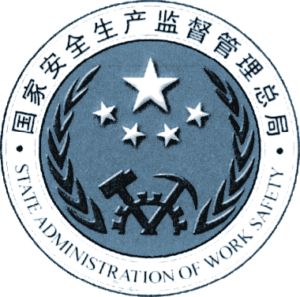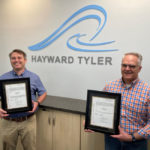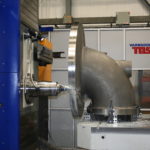You need a partner that offers more than just high-quality products. You need engineering expertise that solves your most complex challenges and takes your operations to the next level.
Hayward Tyler has been providing engineering support and services for over 200 years. Our experience and technical expertise are matched only by our commitment to our customers across the globe in oil & gas, power generation, chemical processing, and nuclear operations.
Advanced engineering expertise
Our engineers are equipped with cutting-edge engineering technology that enables them to perform in-depth design analysis, flow simulation, and material evaluation, ensuring that our customers always receive the quality and performance they demand.
Advanced engineering design tools

All our mechanical designs are carried out in 3D using Solidworks design package. Several software tools are used in conjunction with Solidworks to develop and verify these designs. We have a dedicated software package for the design of the hydraulic surfaces of impellers, diffusers, and pump case volutes. We also have packages for the design of radial and axial hydrodynamic bearings and to perform rotodynamics analysis.
Several simulation tools are utilized to verify the performance of the designs, including Maxwell electrical simulation, Computational Fluid Dynamics (CFD) for hydraulic flow simulations, Finite Element Analysis (FEA) for structural and seismic analysis, and XLrotor for torsional dynamic simulation. In addition, we use Motor Design Limited (MDL) software for analysis of electrical thermal data.
Finite Element Analysis (FEA)

Utilizing Finite Element Analysis (FEA) allows our engineers to evaluate the effects of the real world on product designs during the beginning stages of the process. FEA is a virtual simulation tool used to test how a design will react to physical effects such as bending, fluid flow, heat, and vibration. Using this software allows our team to evaluate designs and make any changes that are necessary to ensure our customers receive the performance-critical quality they demand.
Computational Fluid Dynamics (CFD)
Computational Fluid Dynamics is a tool used to quickly and effectively simulate liquid and gas flow through potential designs. The ability to simulate hydraulic flow through various designs allows our engineers to catch any complications in the beginning stages, saving valuable time and money. The CFD simulation also allows for comparison between varying models, ensuring the final design is the most efficient and effective one available.
Spectral Analysis
Spectral analysis is a powerful tool for visualizing unbalance, structural responses, system instabilities, rotodynamic issues and other machine phenomena. Time series data is captured using accelerometers, and other sensors, then post-processed to baseline new designs, troubleshoot existing units, and enable advanced root cause analysis. Baseline testing validates newly constructed designs, builds a library of pump family data, and aids robust long-term support of Hayward Tyler pumps.


Seismic Analysis
Finite element analysis is used to evaluate stresses within the pump and motor during a seismic event. These seismic stresses are combined with stresses caused by internal pressure, thermal loads, and nozzle loads to ensure the combined stress complies with ASME Code requirements. The seismic accelerations can be specified directly by the customer or determined from a response spectrum in conjunction with a frequency analysis.
Rotodynamic Analysis

The design of rotating machines requires careful attention to the rotating geometry, loads, speeds, bearing clearances, mounting structures, materials, and more. The interaction between these considerations can be predicted using purpose-built “rotodynamic” software. These predictions can provide valuable input during the design phase for unique or unproven pumps, improve confidence in modified units within a family, and inform diagnostic efforts for problematic pumps. Analysis and reporting can be performed in accordance with customer required standards or industry specific guidance such as API 610 and API 684.
Material Evaluation and Suitability

Hayward Tyler has an extensive installed base of pumps in challenging applications where fatigue, corrosion, and erosion act on pump components around the clock. This knowledge and experience can be applied forensically to evaluate component failures and to determine the failure mechanism(s) at work. It can also be used to evaluate pump materials in service to reduce corrosion, reduce wear, or prevent fatigue to maximize pump uptime. When material changes or upgrades are warranted, our engineers can prepare detailed evaluation reports to outline the advantages of the material selection and justify the change to the equipment specification. This same approach is applied to new applications where materials are evaluated for suitability to the environment and operating conditions, and the conclusions of the evaluation are thoroughly documented.
Hydraulic Redesign
We have the capability to evaluate existing hydraulic designs and propose modifications to improve hydraulic loading, which extends bearing life, shifts pump operating duty points, and improves efficiency. It is often possible to make these redesigned components as direct replacements to fit with the existing pump and motor, thereby eliminating the need for costly changes to the motor shaft and pump case. Existing hydraulics can also be scanned in 3 dimensions, with those models imported into the CFD software. This is useful for evaluating performance of pumps that do not have design documentation available, or pumps that are in a corroded state.

Quality standards
We can design to a variety of codes, including ASME, CSA, PED, API, IBR, RCCM or other recognized international standards.
Nuclear pump engineering capabilities
Having served the nuclear power industry since the 1970s, we thoroughly understand the requirements and complexity of the industry. We have substantial engineering experience working with ASME Section 3 (Nuclear) designs, in addition to seismic evaluations, nuclear technical specification writing, technical evaluations, and code year reconciliations.
Learn more about our experience in
nuclear industry pumps and motors.

Did you know?
Hayward Tyler is the only company in the UK offering enhanced hotbed testing using computer fluid dynamics modelling software that can evaluate a motor’s thermal thrust when hot.

Photo Gallery


Two Stage Vertical Pump
Pressure Plot

Impeller and Diffuser Section
Velocity Plot


Two-Phase Flow

Unbalance Response

First Bending Mode Shape

Rotor model with first bending mode shape overlaid

Force Response

Waterfall Plot Example

Waterfall Plot
Original Design Response

Waterfall Plot
Revised Design Response

Impact Testing Response

Combined Plot






















